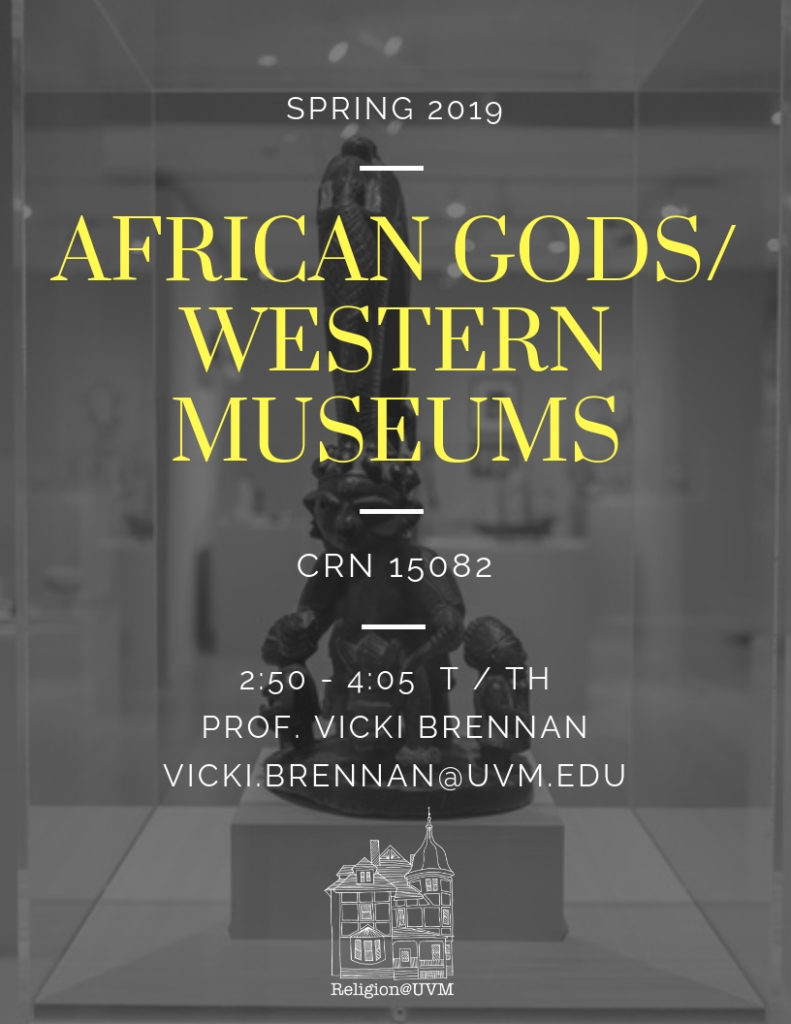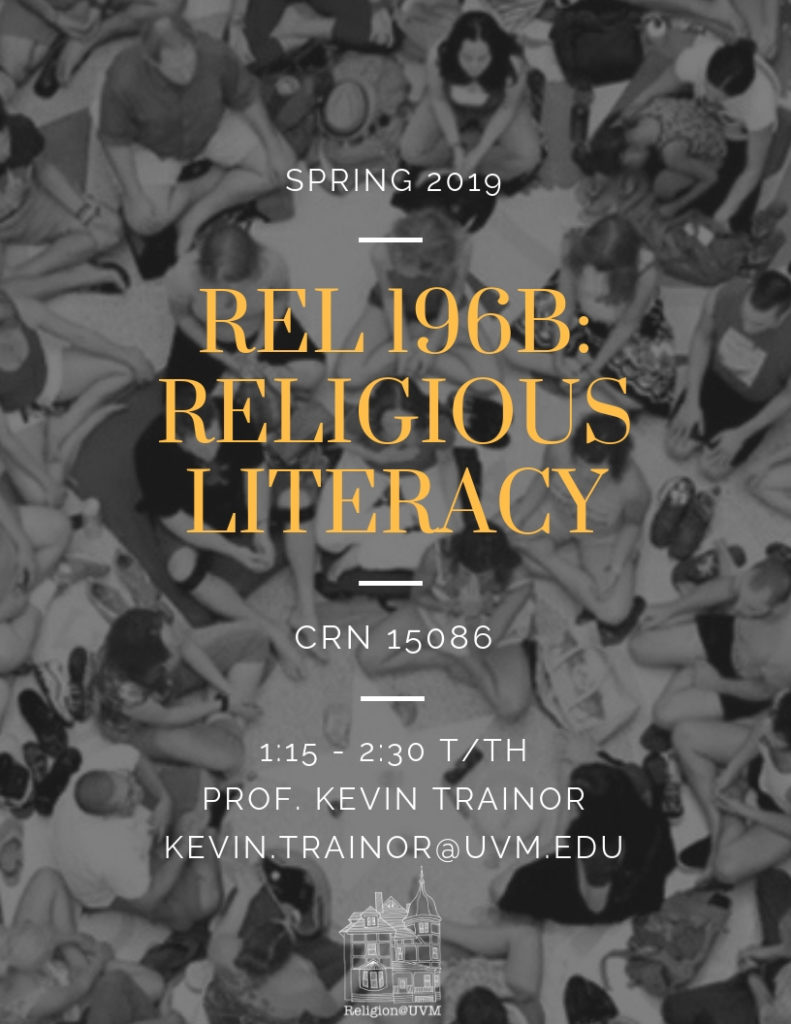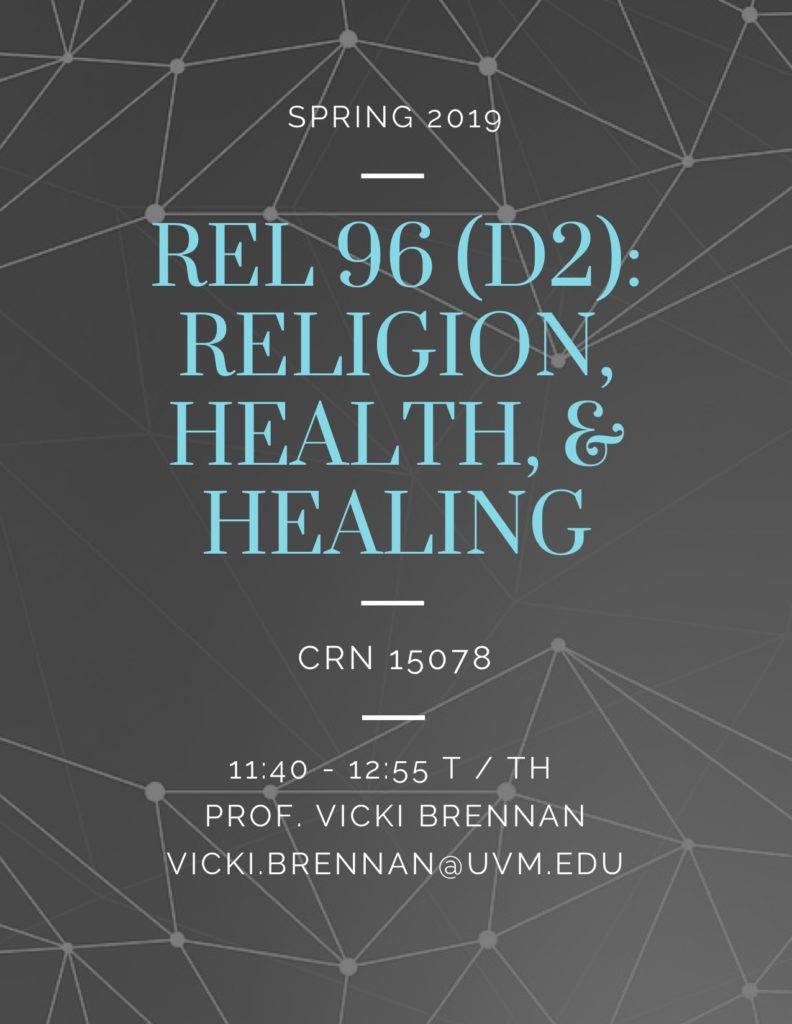NEW COURSE!!

Professor Brennan is excited to offer a new course that will bring Rel@UVM students into conversation with the curators at the UVM Fleming Museum! With the museum scheduled to renovate its Africa and Ancient Egypt Gallery over the next two years, students in this seminar will have an opportunity to help research some of the objects in the museum’s collection and to provide input into how the museum might organize the display of objects in the gallery.
COURSE DESCRIPTION: This seminar will examine African indigenous religions from the perspective of material culture in order to understand how the colonial encounter between Africans and Europeans impacted the creation, use, interpretation, and display of religious objects. At the same time, we will investigate how African religious objects have been displayed and interpreted in Euro-American museums. In doing so we will explore how African religious objects were transformed into “art” as well as the ways in which the value and authenticity of such objects are determined by different participants, including practitioners, scholars, museum professionals, and museum visitors. We will draw on a variety of media—including hands-on workshops with objects from the Fleming Museum’s collection—in order to consider the impact and interpretive work that the display of African religious objects has on the viewer in the Western museum.


